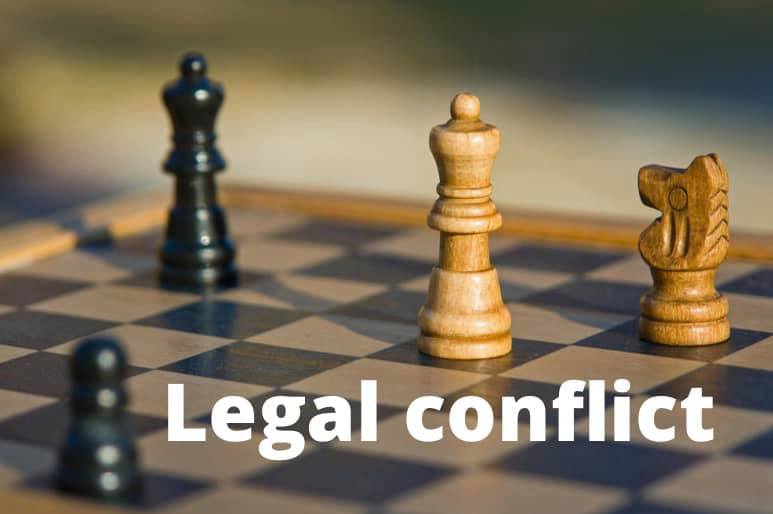
How can lawyers help when you are facing a legal dispute?
When you are facing a legal dispute, a lawyer can assist in various ways, and not only by launching a court case, to help settle, resolve, or end the dispute. These strategies are collectively referred to as “alternative dispute resolution” legal services.
The purpose of this blog is to give the public information on 6 possible ways how lawyers can assist to resolve legal dispute.
1. Direct negotiations
You can appoint a lawyer to represent you in direct discussions with the conflicting party via phone or attending a meeting. Such direct informal communication and negotiations could sometimes resolve minor issues swiftly.
2. Negotiations on correspondence
Professional clear written correspondence can be very helpful to resolve disputes fast. In this regard, a lawyer is usually instructed to formulate the legal issue in a so-called “letter of demand” or “cease and desist letter” which clearly setouts the complainant’s legal right and requests to the other party to resolve the issue by a deadline to avoid further conflict. Such correspondence should contain certain minimum facts and legal arguments to make it effective and is best drafted by an Attorney or Advocate who can take the matter to court, in the event that the issue cannot be settled informally. The tone and contents of this pre-litigation correspondence, and the response thereto, usually dictate the strategy on how to negotiate, settle or fight further. The bulk of legal disputes handled by lawyers are settled informally and confidentially on correspondence.
3. Mediation
If both conflicting parties are committed to settle a dispute informally and want to do so directly and on a speedy cost effective basis, the parties could conclude an agreement that the same lawyer may represent and advise them both in capacity as Mediator. Mediation is an intervention by a neutral Mediator who acts as a facilitator to promote reconciliation or a settlement between conflicting parties. Mediation is generally an informal process which gives opportunities for all conflicting parties to be heard. Mediation could be helpful in instances of conflict relating to legal issues or any other issue between conflicting parties. Settlements could be kept confidential. Mediation is best offered by experienced lawyers who are also qualified Mediators.
4. Legal Coaching
Legal coaching is the process whereby a lawyer can confidentially support (“coach”) a client to negotiate a dispute matter involving legal issues without the lawyer going on record to represent the client. In this regard, the Legal Coach can help develop the client’s legal knowledge, strategy and negotiation skills to resolve the dispute informally and directly with the conflicting party. This alternative dispute resolution option is regrettably not yet commonly offered in South Africa, as it is best offered by experienced lawyers who are also qualified professional Coaches. Before commencing Legal Coaching, the Legal Coach and Client conclude a written agreement to set out each party’s obligations and liabilities.
5. Arbitration
Parties could agree to appoint an experienced independent lawyer as an Arbiter to help resolve a dispute. Arbitration is the formal process of resolving disputes outside of court. An Arbiter is appointed as an adjudicator and the procedures are governed by an agreement between the conflicting parties and the Arbitration Act 42 of 1965. Parties agree to abide by the decision of the Arbiter. Unlike in a court matter, proceedings and settlement agreements could be kept confidential.
6. Court Litigation
Court proceedings are usually the last option to be pursued by individuals, start-up businesses or SME businesses to resolve legal disputes, as court proceedings are generally costly and time consuming. Having said that, some legal disputes are required by Law to be ended only in court, for instance, obtaining a divorce order. Also, sometimes threatening and actually launching court proceedings may be the best and only strategic way to force a settlement or bring a dispute to a just and fair end.
Before launching court litigation, consider (a) whether your options for informal settlement have been exhausted, (b) what your chances are to succeed, and (c) whether it will make commercial sense in the end.
Court litigation can be very unpredictable and experienced litigants can use legitimate strategies to delay the matter or run up costs. Large companies often budget for annual litigation to protect their assets and can use litigation as a business strategy to delay or minimize competition.
Decide before hand, (a) what will be your “win”, (b) what you are willing to spend, and (c) how long you can wait to get the matter finalised. Also bear in mind that the courts are public forums and the papers filed can become a matter of public record.
Apart from representing yourself, you can only be represented by an Attorney and/or an Advocate in court proceedings. Attorneys are mainly responsible for taking instructions from clients; preliminary advising on the merits; options and procedures; correspondence with all parties; necessary administrative tasks relating to preparing and filing of court papers; and serving as address for service of court papers. Most Attorneys are also qualified to appear in courts and handle hearings.
Advocates are usually litigation specialists which mean that their primary legal services generally include, giving opinions, settling court papers, drafting Heads of Arguments, appearing in courts and handle hearings. It should be noted that most Advocates (“Referral Advocates”) are not allowed to take instructions directly from the public and must be briefed by Attorneys. Only “Trust Account Advocates” may take instructions directly from the public.
We hope that this information is helpful to help you discuss options with your lawyer and to decide which lawyer to ask for assistance when facing a legal dispute.
Emmie de Kock
LWFH Manager/Lawyer Coach
BLC LLB (cum laude)